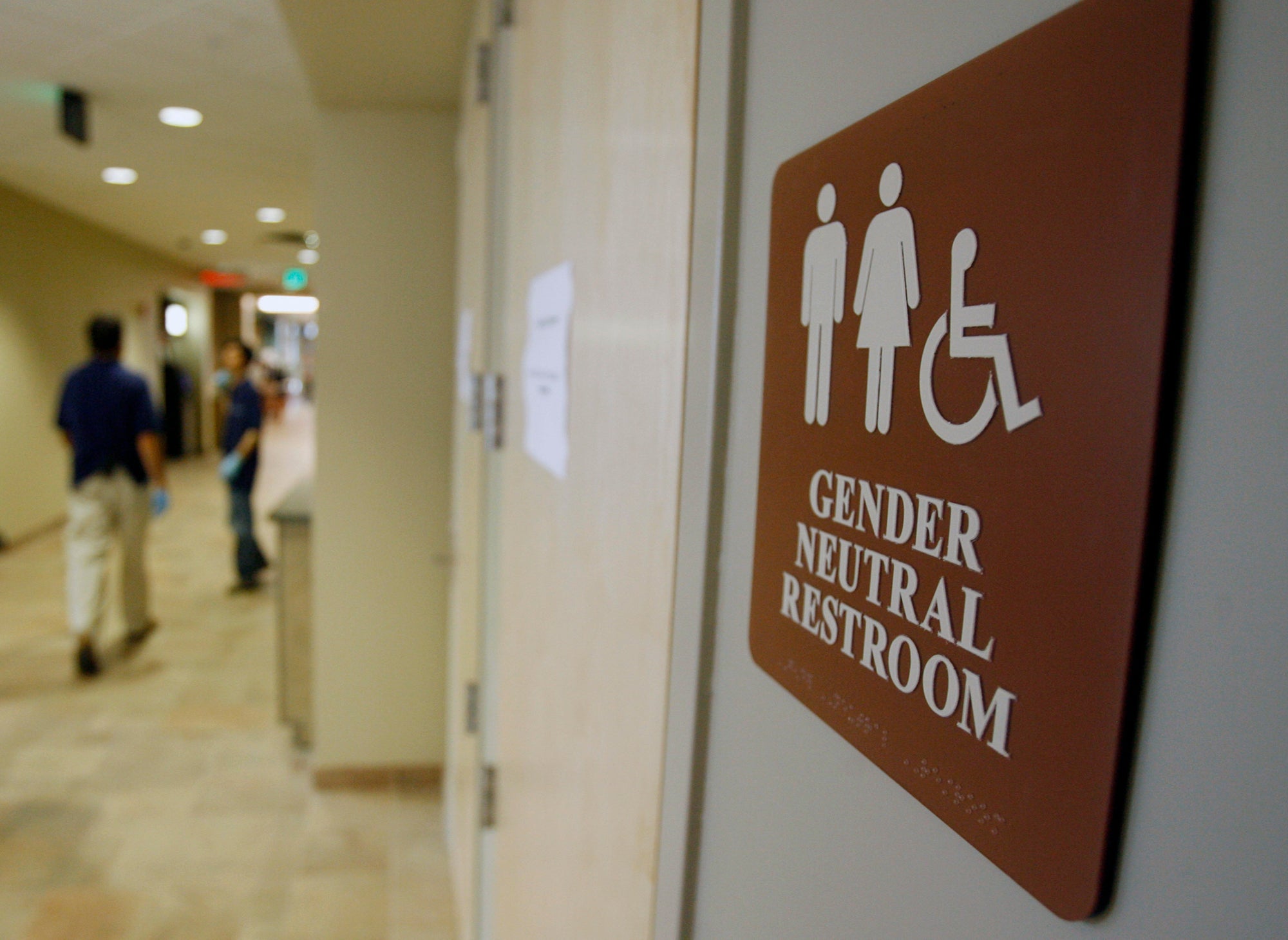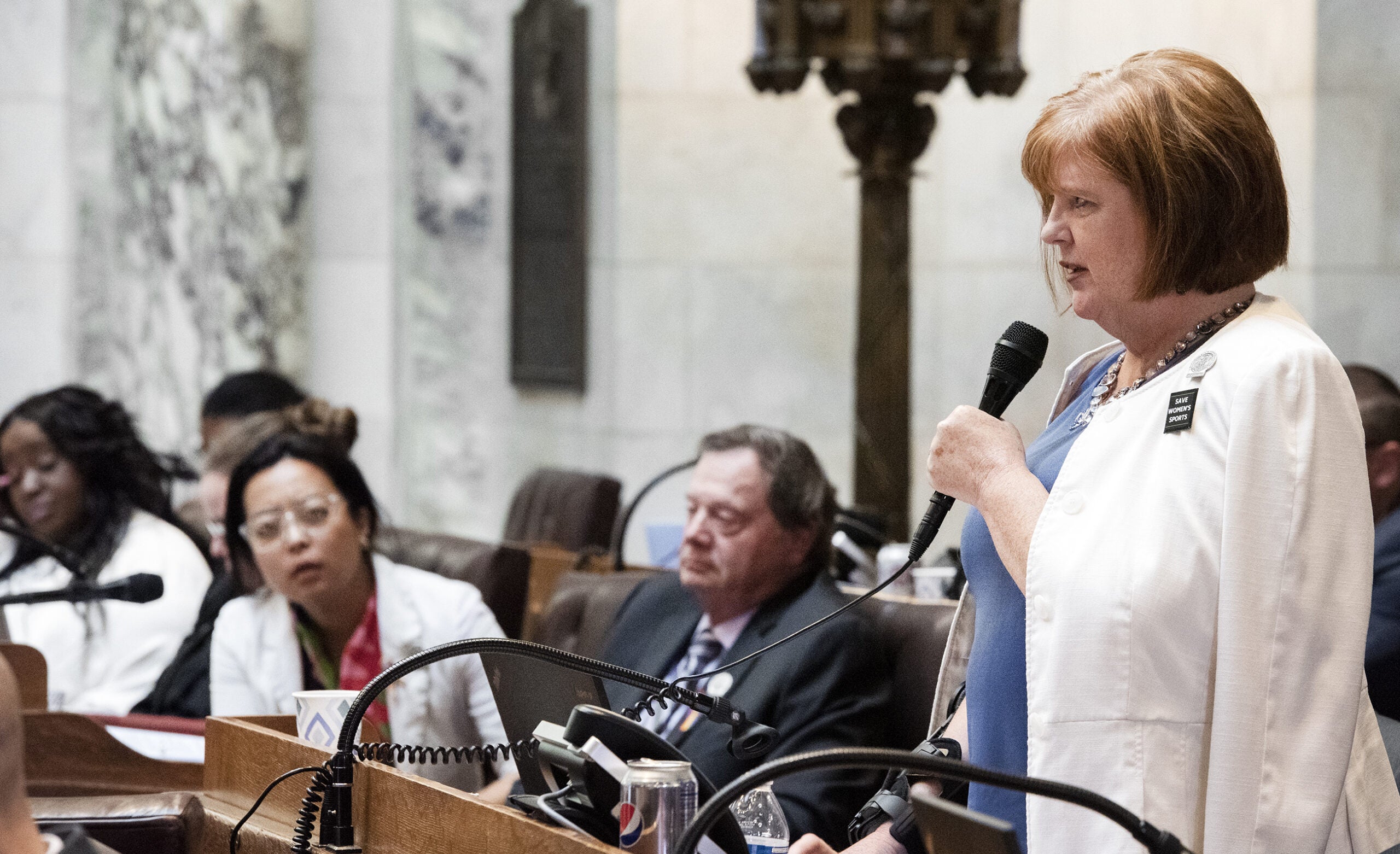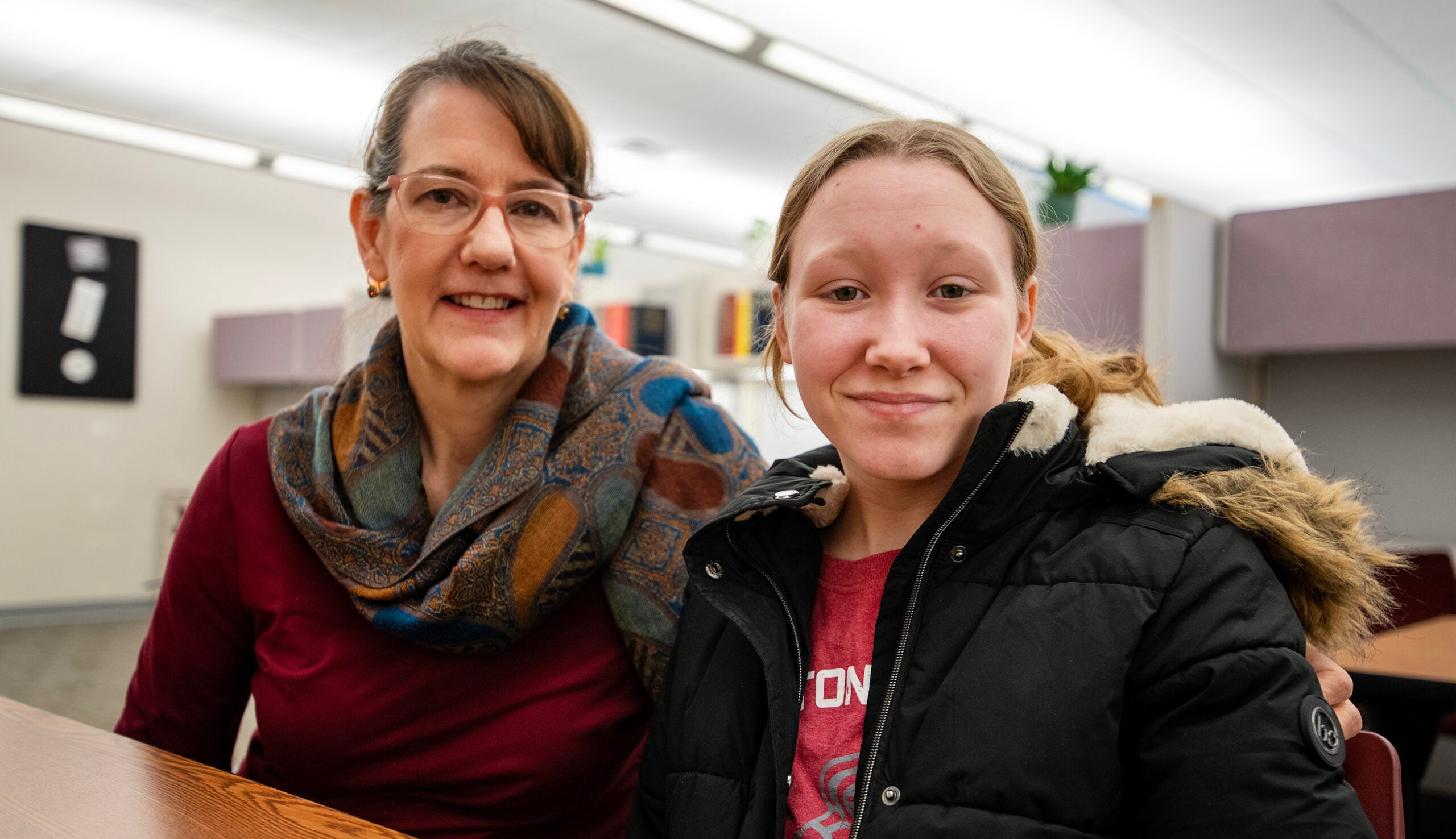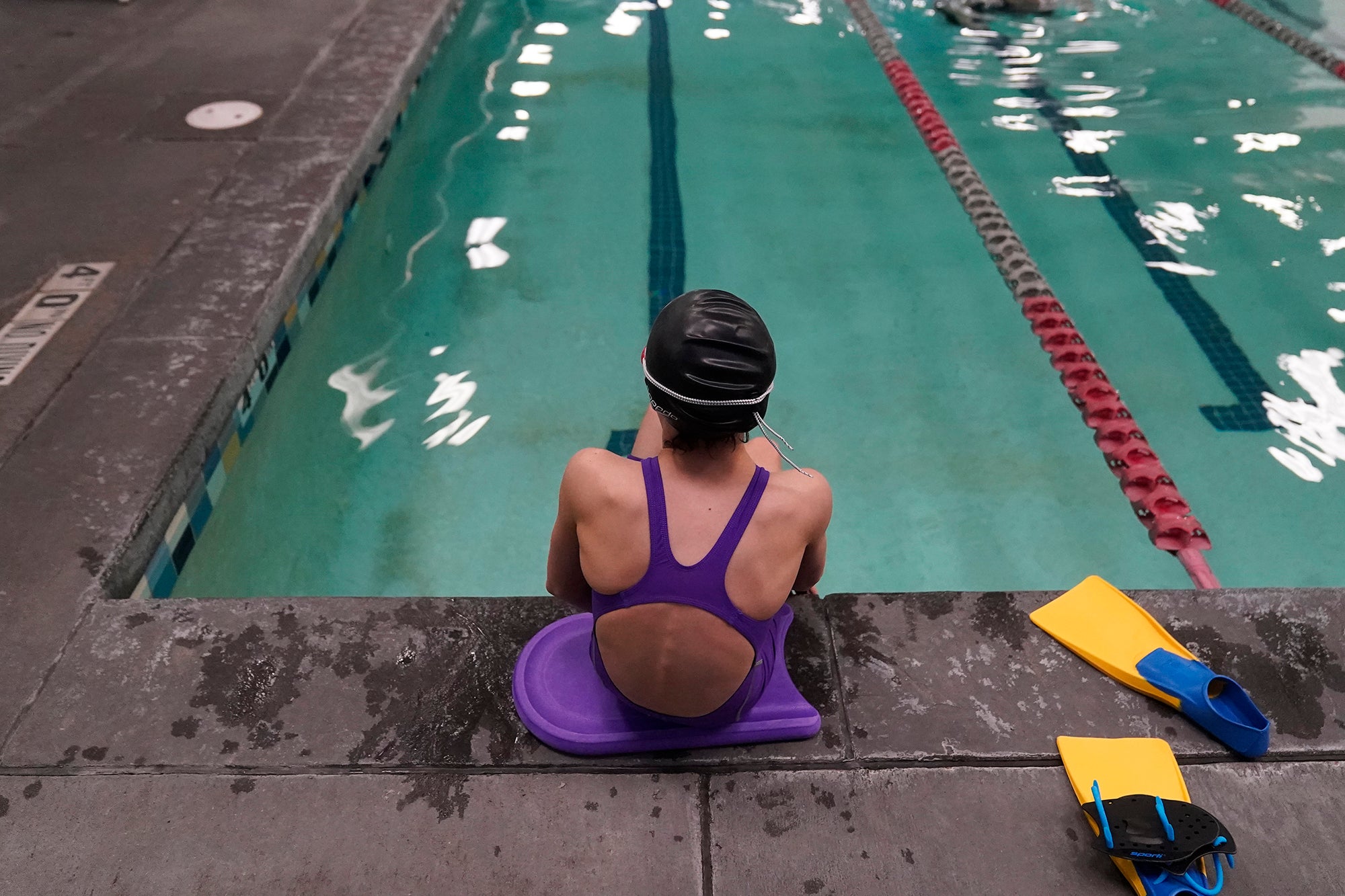She kicked one leg over the saddle horn, turned and grinned at her mother. Then she spun around and faced backward.
“You’re awesome!” crowed onlookers, as “L,” a 7-year-old transgender girl from Mount Horeb, Wisconsin, continued her 360-degree pivot in the saddle — called an “around the world” — on her faithful steed, Tully.
L (her full name is omitted here, for privacy) just started taking horseback riding lessons. It’s among a slew of other passions, hobbies and preferences that situate her squarely in the “typical” category for 7-year-old girls. She loves ponies, the color pink, and sparkles.
Stay informed on the latest news
Sign up for WPR’s email newsletter.
But, of course, coming out as transgender at school earlier this year makes her less-than-typical.
When you ask L why she wanted to start using a new name and wearing dresses instead of “boy clothes” to first grade, she has a pretty simple answer.
“Because I was transgender,” she says, her small voice forceful. “I’m a boy, but I changed to a girl because I like girl stuff and I wanted to be a girl.”
L is growing up in a time when transgender rights are one of the most hot-button political issues in the country, and Wisconsin is certainly part of the debate.
During the last legislative session, Rep. Jesse Kremer, R-Kewaskum, introduced a bill that would ban transgender students from using the bathroom that aligns with their gender identity.
Kremer didn’t respond to an interview request for this story, but in a press release announcing the bill, he said the proposal “is first and foremost to keep our kids safe.”
“Clarifying the appropriate use of bathroom and locker facilities will ensure that the dignity of all students is respected in these areas where privacy and safety are paramount,” Kremer said.
In addition to requiring students to use the bathroom and locker room that corresponds with their sex assigned at birth, the bill would have required schools to provide accommodation to transgender students by giving them a “reasonable alternative such as a single occupancy or faculty bathroom or changing area,” according to Kremer’s release.
Speaking on WPR’s “Central Time” in May, Kremer said his bill’s intent wasn’t to discriminate, but instead to prevent sexual predators from abusing transgender bathroom policies.
“I could take my daughter, my neighbor could take his daughter, to an open swim at the local high school … we send our daughters in the locker room to change … there might be a 30-year-old guy in there, changing next to them,” he said. “He might have exposed himself to them … we call the police, and what are the police going to do?”
The bill didn’t pass during the last legislative session, but Kremer has said he plans to reintroduce it when lawmakers return to Madison in 2017.
Last month, Wisconsin Attorney General Brad Schimel signed on to a multi-state lawsuit challenging the Obama administration’s guidance on transgender bathroom use. The policy invokes the federal Title IX law, saying schools should provide transgender students access to their preferred restroom and locker room facilities.
Schimel argues the guidance oversteps the administration’s executive authority.
“It’s not just federal guidance, it’s federal pressure that could cause school districts and universities to lose their share of federal funding,” he said. “Clearly, the president’s administration has gone and changed the statute. They’re not permitted to do that.”
Eddye Toral-Wood, a Madison teenager who came out as transgender in fifth grade, says living in a time when one’s sexuality is the subject of so much social conflict isn’t easy.
“To you, it’s an issue of politics,” she said. “But, to me, it’s my life every single day.”
It’s a little different for “K,” who’s 12 years old and was the first transgender student to come out at her school in Waunakee. She said she isn’t upset by people talking about transgender rights so much these days, even if they aren’t saying the nicest things about her.
“I think people have the right to have their own opinion on certain things, so I don’t find it weird how people are publicly talking about it, because it is kind of an issue for them,” she said. “Me just getting mad about it won’t really make a change at all.”
Under the bathroom policies at their respective schools, both Toral-Wood and K have been able to use the restroom they’re most comfortable with.
According to GSAFE, a transgender rights advocacy group, a growing number of schools in Wisconsin, in about 80 districts, are implementing transgender bathroom policies. Some of those districts are located far from the state’s liberal strongholds, where such policies may be expected.
The Menasha School District, in central Wisconsin, implemented a transgender bathroom policy a little more than a year ago. District superintendent Chris VanderHeyden describes the district’s community as leaning “a little bit more on the conservative side of things.”
VanderHeyden said there was some initial opposition to the district’s policy when it was still in the drafting stages, but there hasn’t been concern from the community since. Even so, he thinks the ongoing state and national debate could spur renewed concerns on the local level.
“It kind of keeps popping up, kind of like the waves on the lake or on the ocean. There’s a little peak of attention, then it goes away for a little while,” he said. “I fully expect it’ll get a lot more attention as we move forward.”
Even if some schools resist that change, or move slowly, some transgender individuals aren’t concerned.
Liz Elliot LeFlore, a gender-fluid 18-year-old from Milwaukee, didn’t let their future college’s transgender bathroom policies deter them from enrolling.
LeFlore is attending Wisconsin Lutheran College to study education this fall. A counselor there told them the school doesn’t have any transgender policies in place, but that didn’t deter LeFlore.
“I’m not going to let my sexuality or gender or anything stop me,” they said. “I’m going to face struggles all the time in life, even when I’m older. But, you know, I’m going to be proud of myself and get the degree I need and be able to teach students.”
LeFlore, Toral-Wood and K said they expect some people to be mean, or rude, or to not understand them. But they’re going to keep living their life — and using the bathroom they think is appropriate, despite political debate, drama and litigation.
In their eyes, the bathroom is … just the bathroom.
Wisconsin Public Radio, © Copyright 2025, Board of Regents of the University of Wisconsin System and Wisconsin Educational Communications Board.




